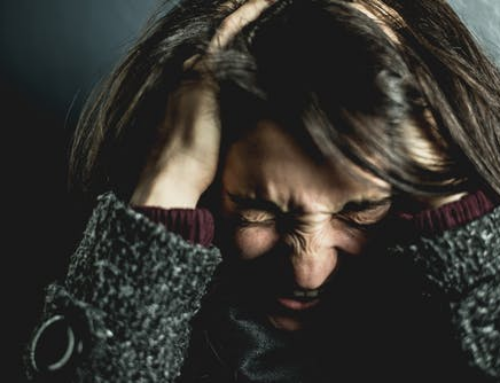A lot of symptoms of panic and anxiety disorders overlap but they’re not the same. When an anxiety attack sets in, it may lead to a panic attack but not necessarily. Many people mistakenly view “panic attack” and “anxiety attacks” as the same or as interchangeable conditions. But the truth is that both attacks are different.
Panic Attacks
Panic attacks are far more intense than anxiety attacks. Often coming on without a readily recognized trigger, panic attacks typically peak after approximately 10 minutes then subside. There are cases where people have experienced multiple panic attacks in a row, making the attack seem longer. Panic attacks also may leave the person feeling drained. Many people end up feeling worried, stressed (physical tension throughout the body), or just out of place after the attack subsides.
Other symptoms of a panic attack include, but are not limited to:
- Getting the sudden fear that you’re in danger and will die
- Feeling like you’re going insane and have no control
- Feeling detached from your surroundings
Also, people experience the following physical symptoms:
- Chest pain
- Feeling like you’re being choked or smothered
- Sweating
- Shortness of breath
- Stomach pain
- Racing heartbeat
- Nausea
- Shaking
- Numbness
- Hot flashes
- Lightheadedness
- Overwhelming impending doom
Anxiety Attacks
Anxiety attacks do come on suddenly but have a clear trigger. You may have a period of worrying excessively before your emotions push you into getting an anxiety attack.
Anxiety attacks are believed, to have no specific time limits. So, while some people experience anxiety attacks for some minutes, others may experience it for hours. However, unlike panic attacks where a person may be intensely aware of their emotional and physical symptoms, anxiety attacks typically cause adverse physical symptoms that can persist for a prolonged period, extending to weeks, or in some unfortunate cases, even months.
Symptoms of anxiety attacks include, but not limited to:
- Shortness of breath
- Worrying and distress
- Getting startled easily
- Numbness
- Chest pain
- Dry mouth
- Dizziness
- Muscular pain
- Fatigue
- Fear
- Irritability
- Loss of concentration
- Feeling smothered or choked
- Sleep disturbances
- Restlessness
- A feeling of impending doom
Recognizing Anxiety Attacks and Panic Attacks
Considering the symptoms for both conditions, here’s the gist of how you can differentiate between the following:
- Anxiety attacks are a response to a threat or a trigger. Panic attacks can occur without a consciously recognized trigger
- Panic attacks are typically disruptive and intense, whereas anxiety attack symptoms can vary in intensity
- Anxiety attacks symptoms can gradually increase over time, while panic attack symptoms occur suddenly
- Anxiety attack symptoms take a long time to subdue. Panic attacks usually subdue after a few minutes
Please note: Anxiety in its heightened state can turn into a Panic Attack.
Treating Panic and Anxiety Disorders
Panic and anxiety disorders are treatable. Options include psychotherapy, medication, as well as hypnotherapy.
For clients who are new to these treatment options, though, our recommendation is hypnotherapy. A type of complementary medicine that prompts a state of focused attention to promote positive suggestions, hypnotherapy is a good option for treating panic attacks, anxiety, and other mental health conditions.
At Advanced Hypnotherapy of Naples, we provide hypnotherapy for all clients in need. If you or someone you know are experiencing panic attacks or suffering from anxiety, get in touch with us today and book an appointment so you can get the help you need.



